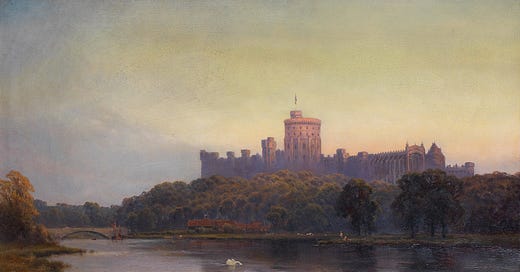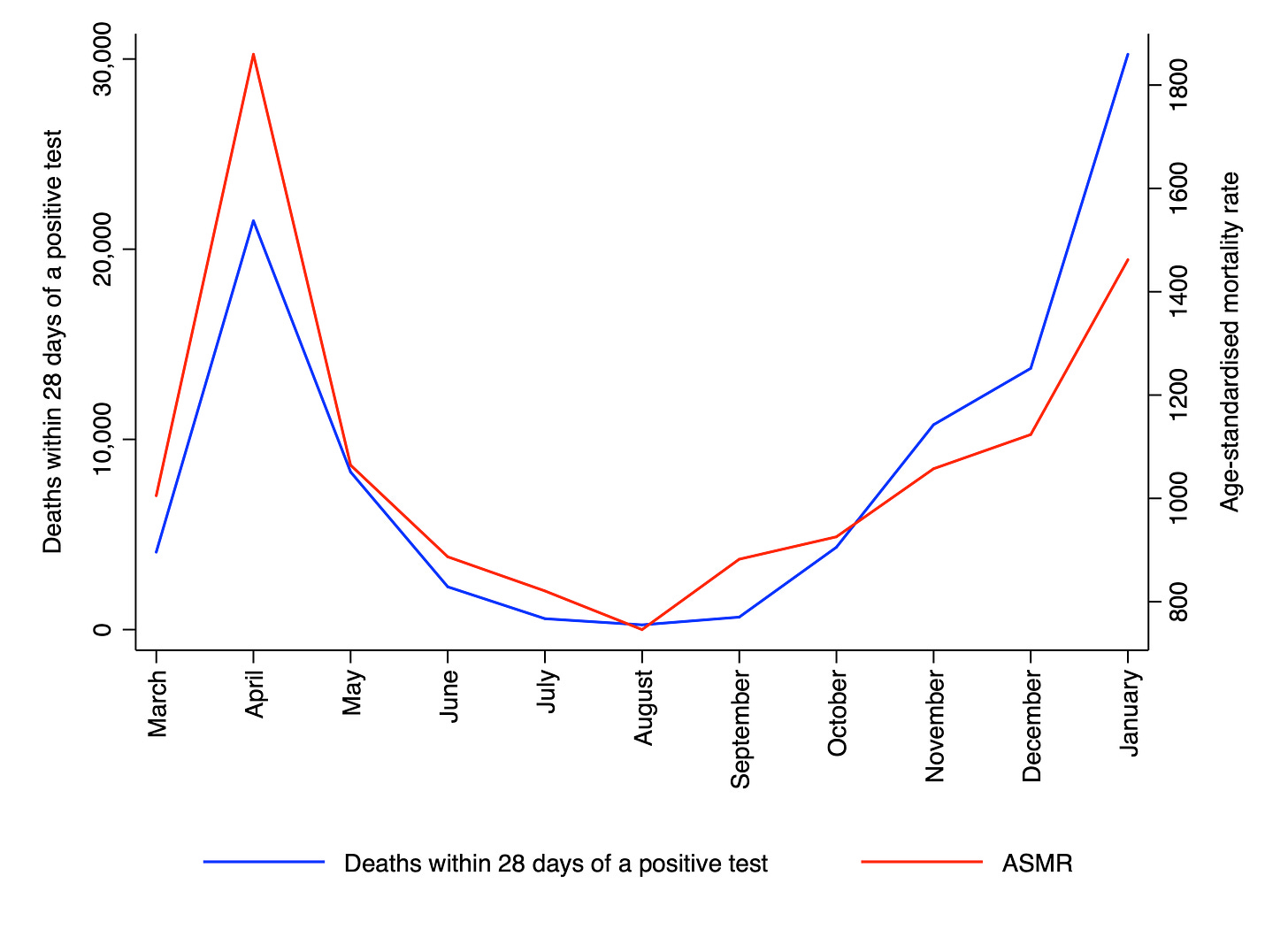The second wave of COVID-19 in England
As I’ve noted several times, the best way to compare mortality across countries or over time is to use an age-adjusted measure, such as life expectancy or the age-standardised mortality rate. In this regard, the ONS has now published its estimate of the age-standardised mortality rate in England for the month of January, which allows for a meaningful comparison between the first and second waves. In the chart below, the ASMR is plotted alongside the number of deaths within 28 days of a positive test (the “headline figure”).
The chart confirms that there has been a substantial rise in age-adjusted mortality during the second wave of the epidemic. However, there are two key differences between the first and second waves: the peak is lower in the second, but the time for which mortality is elevated will probably end up being longer (assuming it does not immediately return to baseline in February). As a consequence, the second wave may turn out to be slightly more lethal than the first.
The chart also confirms that ‘deaths within 28 days of a positive test’ gives a very inaccurate picture of the relative severity of the two waves: it suggests that the second wave was far more lethal than the first. This is partly due to understating the severity of the first wave (false negatives) and partly due to overstating the severity of the second (false positives). As I’ve noted before, the inaccuracy of this measure was already evident from comparing it to the number of excess deaths.
Image: Alfred de Breanski, Windsor Castle at sunset
Gregory Clark: the plot thickens
I mentioned in my last newsletter that Gregory Clark, an eminent scholar of economic history, recently landed in hot water at the University of Glasgow. According to the student newspaper, a seminar he was due to give had to be postponed “amid pressure from student groups”. I suggested this hostility might have been prompted by the indelicate title Clark had chosen: ‘For Whom the Bell Curve Tolls: A lineage of 400,000 individuals 1750-2020 shows genetics determines most social outcomes’.
It seems I was correct. The Times reports that Clark’s seminar happened to coincide with the publication of a university report titled ‘Understanding Racism, Transforming University Cultures’. And it quotes him as saying:
My talk was regarded as a provocation in this situation. I had a half-hour Zoom meeting with the dean. He would reschedule the talk if I agreed to change the paper title to not have any reference to ‘bell curve’. I have refused.
At the University of Glasgow, academic freedom does not extend to choosing the titles for your own seminars (that is, if you want to make a pun on the title of a controversial book). To make things clear, they should let external speakers know in advance: “You may mention The Bell Curve but only in the context of denouncing it.”
Another detail that has come to my attention is that it wasn’t just students who kicked up a fuss about Clark’s seminar. Apparently, 110 academics sent a letter to the Principal “expressing serious concern over a scheduled talk concluding that social status is substantially determined by genetic inheritance”. In other words, all perspectives on social inequality are allowed, just so long as you don’t conclude that genes play a substantial role.
Richard Hanania summed up the incident well on Twitter:
When I see things like this now, what’s notable to me is not the censorship. The question is, if you have something interesting to say, why say it a university instead of somewhere with a bigger audience and where people still have an interest in ideas?
Thanks for reading. If you found this newsletter useful, please share it with your friends. And please consider subscribing if you haven’t done so already.





